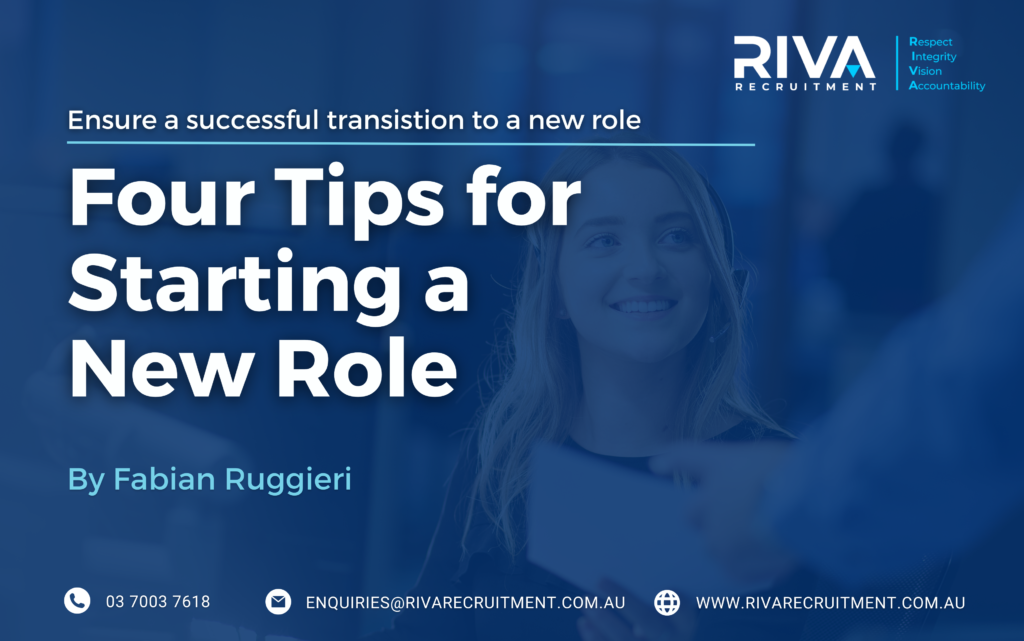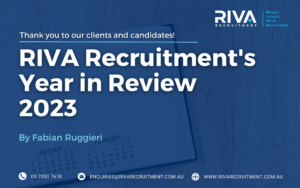Three months ago, I started a new position as Recruitment Consultant at RIVA Recruitment Australia, specialising in Financial Planning jobs.
Given I have held seven different positions across four organisations in my professional career, the latest of which from Financial Planning to Recruitment represents a complete career change, I am sharing some actionable tips to make your next transition smoother.
Whether you are changing roles in your current workplace, changing businesses, or even changing industries, here are my top four tips for a successful transition into a new role:
-
Any questions?
The answer should be a resounding YES. Play your ‘newbie’ card strategically and ask well timed questions to learn about your new company and the ecosystem it exists in. Taking the time to learn about what your new colleagues do and how your work overlaps will help you build essential rapport and even create future business efficiencies.
I place a big emphasis here on strategically, always do your research before asking something you could have looked up yourself!
-
Roadblocks and Solutions
You are in a unique position to look at the new business you are joining or your new position with fresh eyes. Start making a list of the roadblocks you come across which can be improved, along with workable solutions to the roadblocks. Be sure to include some benefits that will result from implementing the proposed solutions. For example:
|
Roadblocks What can we improve? |
Solutions How do we fix it? |
| The Work In Progress spreadsheet is emailed back and forth with changes every few hours. I have to scroll through my emails to find the most current file, and I am still not sure where everyone is up to on each project. |
– Introduce a collaborative document (google docs/excel workbook sharing) |
Once you have settled into your new position, a good manager will pull you aside to ask you ‘what can we (the business) do better?’. This is your time to shine! You are not only going to have a whole list of improvements, but you will also have proposed solutions and some well-crafted benefits to illustrate a positive impact to the business.
-
First impressions stick. Make yours count.
Take the time early on to get to know as many of your new colleagues as you can, regardless of their title. Every person in your business plays an important role and keeps the wheels turning. Getting support when you need it often comes from the most unlikely sources, so build quality relationships with all your colleagues regardless of their seniority.
-
Be kind to yourself.
It takes time to settle into a new role. Do not be too self-critical as mistakes are inevitable early on and mean that you are stepping outside your comfort zone.
I once printed a 60-page document to the label maker instead of the printer and thought that it was all over for me! Own up to your mistakes early and commit to doing better next time. This means more than getting it right every time.
A new role comes with steep learning curves, endless personal development opportunities and the occasional mistake. Keep your focus on building rapport and soaking it all in as you learn the ropes, and read through this article to help you in achieving a successful transition into a new role.
RIVA Recruitment specialises in financial services recruitment across Australia. If you are seeking a new employee for your business or you are seeking a new employment opportunity, please feel free to contact RIVA Recruitment via LinkedIn, on 03 7003 7618, or email us at enquiries@rivarecruitment.com.au for further information.








